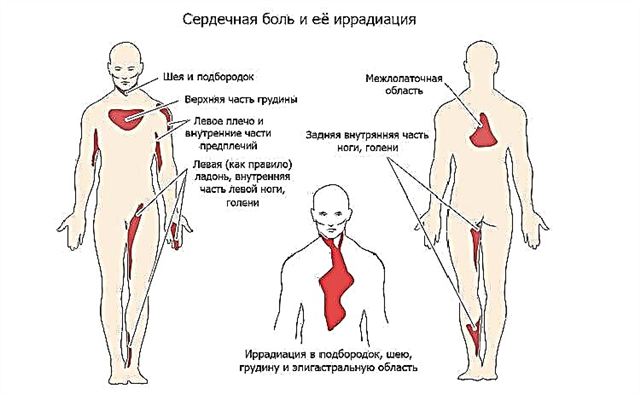Grapefruit is a hybrid species that emerged from the crossing of an orange and a pomelo. Despite its exoticism, the fruit has spread widely in temperate latitudes and has attracted the attention of doctors. The juice and pulp of the fruit contains a huge amount of useful biologically active substances, vitamins (there is more ascorbic acid than other citrus fruits) and mineral elements. Dry fruit extracts are used to create nutritional products for athletes. The use of citrus in the treatment of cardiovascular pathology is due to hypotensive and metabolic effects.
Beneficial features
The multicomponent composition of citrus fruits has a wide range of therapeutic effects. The main effects of grapefruit and the mechanism of development are presented in the table.
| the effect | Implementation method |
|---|---|
| Correction of metabolic disorders | Naringin (active ingredient in the peel and fibrous septa of the fruit):
|
| Hypoglycemic (sugar-lowering) |
|
| Cardioprotective ("heart protection") |
|
| Sedative (sedative) | Aromatic oils in the peel of the fruit are used in the complex therapy of depression, neurosis and asthenic conditions with severe weakness and fatigue. The most effective are grapefruit baths. |
| Tonic | Vitamins and minerals of citrus juice have general tonic properties, improve the condition of the skin, hair and nails. |
Juice composition and indications for its use
The chemical composition is due to the hybrid origin of the grapefruit, in which the components of orange and pomelo are determined. Useful substances of citrus juice:
 ascorbic acid (vitamin C);
ascorbic acid (vitamin C);- nicotinic acid (PP);
- thiamine (B1);
- biotin (B7);
- cholecalciferol (D3);
- retinol (vitamin A)
- macro- and microelements (sodium, magnesium, calcium, potassium);
- organic acids;
- naringin;
- pectin (fiber);
- essential oils.
The highest concentration of active ingredients is found in red grapefruits.
Indications and contraindications for the use of the fruit for therapeutic purposes are presented in the table.
| Indications | Contraindications |
|---|---|
|
|
It is not recommended to drink the medicine with grapefruit juice, since the components of the citrus reduce the activity and distribution of the drugs.
How does grapefruit affect blood pressure readings?
The antihypertensive effect of grapefruit is realized by:
- reducing overweight (obese people have a high risk of developing hypertension);
- normalization of the lipid spectrum of blood (atherosclerotic plaques - one of the factors of arterial hypertension);
- prevention of cardiovascular pathology.
The therapeutic effects of the individual components of grapefruit juice are presented in the table.
| Active substances | Effects on the body |
|---|---|
| Naringin (metabolized to naringenin) | Normalizes fat metabolism, helps to eliminate excess cholesterol. |
| Nicotinic acid (vitamin PP or B3) |
|
| Ascorbic acid (vitamin C) |
|
| Essential oils |
|
Grapefruit juice has diuretic properties (removes excess fluid from the body), therefore, reduces blood pressure.
Is it possible to eat fruit with hypertension?
Grapefruit affects blood pressure through the main risk factors, which is characterized by a complex and safe effect on pathology. Therefore, citrus fruits are actively assigned to the diet of hypertensive patients.
However, the active ingredients of the fruit are not enough to treat the disease. The remedy is not used for hypertensive crises, complicated variants of hypertension. The effectiveness of the use of grapefruit is based on a combination with traditional pharmacological methods of pressure correction.
In the event of the appearance of objective symptoms (pain in the back of the head, dizziness, heart palpitations), it is necessary to consult a doctor and prescribe drug therapy.
Features of reception
It is necessary to use grapefruit from pressure after consulting a specialist to exclude contraindications and compatibility with concomitant therapy.
Rules for the safe and effective use of the fruit:
- For the purpose of treating or preventing cardiovascular diseases, it is recommended to consume 1 fruit daily.
- You can replace the fruit with 1 glass of freshly squeezed juice with pulp ("fresh"). To reduce bitterness, it is recommended to add 1 tablespoon of honey.
- Patients with sensitive tooth enamel need to drink the juice through a straw.
- The fruit is eaten after a meal, since the extractives of the fruit cause irritation of the mucous membrane.
- For patients with reduced secretory function (hypoacid gastritis), it is recommended to consume juice on an empty stomach.
- Grapefruit is prescribed with caution to pregnant women, nursing mothers and children due to the risk of allergic reactions. Start with small portions of the fruit (1 wedge), gradually increasing the dose.
- If signs of hypersensitivity appear, you should stop taking the fruit.
The combination of grapefruit, medications and herbal medicines that lower blood pressure, enhances the effectiveness of therapy.
Conclusions
The hybrid fruit has a rich chemical composition, which makes it possible to prescribe citrus for the treatment of obesity, atherosclerosis, diabetes mellitus and coronary heart disease. The use of grapefruit for hypertension is due to a pronounced hypotensive effect, strengthening the vascular wall and improving blood circulation. The moderate diuretic and sedative effect of the fruit juice and essential oils explains the widespread use of the fruit in medical and cosmetic practice.

 ascorbic acid (vitamin C);
ascorbic acid (vitamin C);

